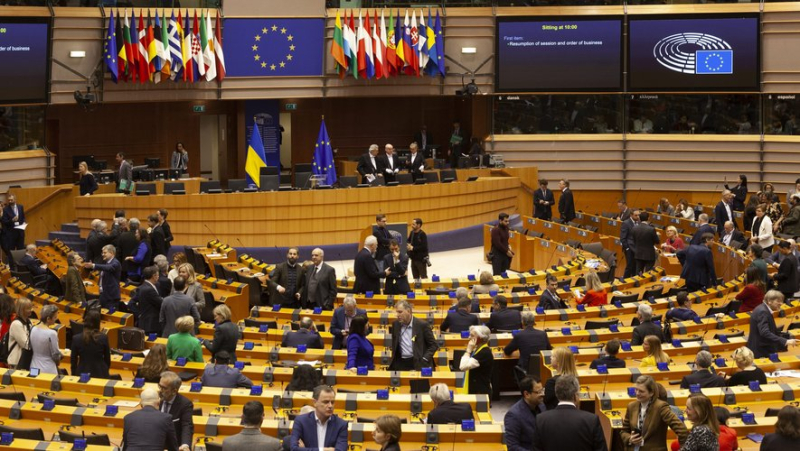“We will be able to better protect our borders”: what must change with the new European Asylum and Immigration Pact

Le texte prévoit un mécanisme de solidarité entre les Vingt-Sept. MAXPPP – Nicolas Landemard/Le Pictorium
Le Pacte migration et asile a été adopté, mercredi, par le Parlement européen. Il porte de nombreuses évolutions, mais est loin de faire l’unanimité dans la classe politique.
The European Parliament adopted on Wednesday the Migration and Asylum Pact, a set of legislative texts intended to better control the arrivals of migrants in the EU, establish a solidarity mechanism between member countries, reinforced in the event of crisis, and accelerate the procedures for processing asylum applications.
This package of regulations and directives was the subject of a compromise between Member States and MEPs last December after nine years of negotiations, to address this major issue since the peak migration of 2015 and the influx into the EU of Syrian migrants driven out by the horrors of war.
What the text provides
But Polish Prime Minister Donald Tusk immediately warned that his country would not accept the solidarity mechanism. This provides that Member States participate in the relocation of asylum seekers or beneficiaries of international protection on their territory or provide a financial contribution or operational and technical support.
This refusal from Warsaw should not, however, prevent the ratification of this migration reform by a majority of member states. The pact also provides for reinforced border controls, a new accelerated procedure for people considered unlikely to obtain asylum, in order to prevent them from staying for a long time on the territory of the ;rsquo;European Union, as well as “filtering” immediate treatment of migrants upon their arrival in the EU.
A source of tension
"We will be able to better protect our external borders, vulnerable people and refugees, to quickly return those who are not eligible for stay, with a obligation of solidarity between member countries", welcomed the European Commissioner responsible for migration policy, Ylva Johansson. But the issue is also political in the run-up to the European elections in June.
This vote, defended by the three major political blocs of the European Parliament – conservatives from the EPP, liberals from Renew and part of the Socialists & Democrats (S & D) –, is criticized both by the extreme right, who consider it insufficient to reduce immigration, its hobby horse, and by the left-wing parties and environmentalists, who denounce human rights abuses.
A political issue
"We oppose this Submergence Pact", declared the president of the National Rally, Jordan Bardella, head RN list for the June 9 election in France. "Nausea", for his part, commented on Manon Aubry, head of the list of La France insoumise, after the Parliament vote."The socialists, liberals and the right are realizing the nightmare dreamed of by the extreme right: the Europe of barbed wire rather than the Europe of solidarity.& ;quot;
L’ensemble des textes du Pacte asile migration lancés par @EmmanuelMacron lors de la présidence française ont été adoptés par le Parlement européen !
Une avancée majeure pour l’Union européenne : renforcer la lutte contre l’immigration irrégulière, agir en solidarité entre États…
— Gérald DARMANIN (@GDarmanin) April 10, 2024
Human rights activists denounce a reform which will notably allow the detention of migrants, including minors, on a large scale and will grant Member States the possibility of avoiding welcoming migrants in entrusting this task to third countries.




